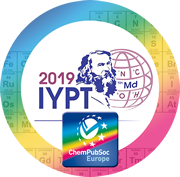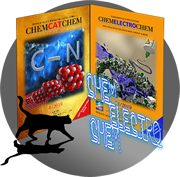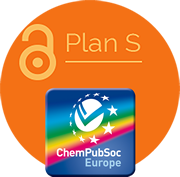Chemspec Europe, Messe Basel, June 26-27, 2019
Transforming challenges into opportunities
Operating in a highly competitive market with complex environmental guidelines, the fine and speciality chemicals industry is currently experiencing a multitude of pressures whilst benefiting from high levels of investment, especially in green and bio-based technologies. With the right mindset and information, the current challenges can be turned into opportunities for innovation and business growth.
Now in its 34th edition, Chemspec Europe 2019 unites an impressive array of experts, scientists, managers and thought-leaders and provides a powerful and well-known industry platform to discuss the latest market trends, technical innovations, business opportunities and regulatory issues in this rapidly changing market.
Exhibitors at the fine and speciality chemicals exhibition are manufacturers, distributors, regulators, equipment suppliers, raw materials suppliers, traders, agents and consultants, featuring the full spectrum of fine and speciality chemicals for various applications and industries: pharmaceuticals, agrochemicals, polymers, food and feed ingredients, flavours and fragrances, pigments and dyes, paints and coatings, household and cleaning chemicals, adhesives and sealants, petrochemicals, leather and textile chemicals, electronics and many others.
Additionally an outstanding conference programme provides further knowledge and insights into major industry developments as well as key strategies adopted by industry leaders to succeed and grow. All visitors and exhibitors are invited to attend free of charge.
Chemspec Europe 2019 will take place from 26–27 June 2019 in hall 1.0 of Messe Basel, Switzerland. The Basel region is one of Europe’s major hubs for the fine and speciality chemicals industry and borders three of Europe’s strongest countries in this sector – Germany, France and Switzerland.
Don't miss the key industry event of the year!
David Spichiger, SCS
21.05.2019
ChemPubSoc Europe Newsletter 18, May 2018
ChemPubSoc Europe has launched into the International Year of the Periodic Table (IYPT 2019) with verve. In this issue we bring you an update on the progress of our 16 titles, we toast the respective 10th and 5th Anniversaries of ChemCatChemand ChemElectroChem, and we acquaint you with ChemPubSoc Europe's official statement on Plan S.
 |
ChemPubSoc Europe in the IYPT 2019 The IYPT follows hot on the heels of a productive calendar year 2018. In this item we highlight ChemPubSoc Europe's growth metrics and changes to the responsible teams. In 2019, ChemPubSoc Europe journals roll out a harmonized Notice to Authors and preprints guidance that will simplify the submission process for authors. We bring you an overview of ChemPubSoc Europe's activities to mark IYPT 2019, including special articles, competitions, and prizes.
|
 |
ChemCatChem and ChemElectroChem celebrate birthdays This year ChemCatChem celebrates a decade of publishing in catalysis and it's ChemElectroChem's 5th Anniversary. ChemPubSoc Europe led the way with the establishment of these two journals; it created an over-arching catalysis journal and ignited a revival in electrochemistry. To commemorate the occasion, the journals have published first issues packed with research and review articles—many of which are authored by Board members. These are free to read in 2019. Read about the efforts of both journals to support society publishing, women in chemistry, and more.
|
 |
ChemPubSoc Europe’s Feedback on Plan S In 2018, some European funding organizations formed cOAlition S and released "Plan S", followed by an implementation directive. Like many societies, the 16 European chemical societies comprising ChemPubSoc Europe have submitted feedback to cOAlition S regarding the implementation guidance. Wiley and Projekt DEAL, a consortium of more than 700 German libraries and research institutes, have established a landmark agreement for Germany to pilot new publishing models. ChemPubSoc Europe is proud to be part of this innovative and transformative action toward open science. For more information, visit: bit.ly/DEALAuthor
|
There are many excellent reasons to publish with ChemPubSoc Europe. We look forward to your high-quality submissions!
Visit ChemPubSoc Europe online and on Twitter. For regular updates subscribe to the ChemPubSoc Europe newsletter and the monthly newsletter published by the award-winning team at ChemViews Magazine. Contact ChemPubSoc Europe with your society news.
David Spichiger, SCS
13.05.2019
Wissenschaftsvideos gesucht! 20.000€ Preisgeld bei Fast Forward Science 2019
Du begeisterst dich für Wissenschaft und hast Lust eigene Webvideos zu machen? Du brennst gerade für ein aktuelles Thema aus der Forschung und möchtest es anderen näherbringen? Egal ob Mathematik, Sprachwissenschaft, Philosophie oder Astronomie – schnapp dir deine Kamera, setz dein Thema richtig in Szene und mach mit bei Fast Forward Science, dem Webvideo-Wettbewerb für die Wissenschaft!
Wir suchen bis zum 22. Juli 2019 die besten Wissenschaftsvideos im Netz. Mitmachen können alle, gleich ob Studierende, Kommunikatoren und Kommunikatorinnen, Nachwuchswissenschaftler, YouTuber und an Wissenschaft Interessierte.
Das könnt ihr gewinnen:
Den besten Videomachern winken natürlich nicht nur Ruhm und Ehre, sondern auch Preisgelder bis zu 3.000€ und eine Teilnahme an der Preisverleihung am 14. November 2019 in Berlin.
Hier könnt ihr einreichen:
Je nachdem, welchen Schwerpunkt ihr in eurem Video setzt, könnt ihr es in verschiedenen Kategorien einreichen. Es gibt drei unterschiedliche Kategorien, in denen wir jeweils die ersten drei Plätze auszeichnen:
- SUBSTANZ: Wissenschaft komplex
- SCITAINMENT: Forschung unterhaltsam
- VISION: Zukunft fasziniert
Für die ganz Schnellen unter Euch empfehlen wir die Teilnahme an unserer SUPER FAST — 24H-INSTAGRAMCHALLENGE. Die Herausforderung: Ihr müsst innerhalb von 24 Stunden ein eine Instagramstory zu einem von uns vorgegebenem Thema produzieren. Aber keine Angst, es handelt sich hierbei um ein Querschnittsthema, zu dem alle Wissenschaftsdisziplinen etwas beitragen können. Die Bekanntgabe des Themas erfolgt am 18. Mai 2019, 12:00, ab dann laufen die 24 Stunden Produktionszeit.
Alle Informationen auf fastforwardscience.de.
Also, ran an Kamera und Schnittprogramm und überrascht uns mit kreativen Ideen, ganz gleich ob Bildende Kunst oder Biotechnologie, Kulturwissenschaften oder Klimaforschung. Gewünscht ist, was euch, uns und die Netzgemeinde begeistert. Wir freuen uns auf kontroverse Themen, begeisternde Geschichten und frische Ideen, die uns zu denken geben.
Viele Grüsse
das Fast Forward Science Team
Bleibt auf dem Laufenden!
YouTube https://www.youtube.com/user/fastforwardscience
Twitter https://twitter.com/fforwardscience
Facebook https://www.facebook.com/fastforwardscience/
Instagram https://www.instagram.com/fastforwardscience/
JMP Explorer Seminars on May 14 and June 13, 2019

Explorer Seminars on May 14:
Data Visualisation with Dataviz Guru Alberto Cairo.
Blog Interview: https://community.jmp.com/t5/JMP-Blog/Alberto-Cairo-Why-a-picture-isn-t-necessarily-worth-a-thousand/ba-p/190124
Alberto Cairo knows that data visualization can be misleading. The responsibility to be understood lies with the designer of the graph, but also with the reader: "Visualizations are meant to be read -- not only to be seen." Learn how to create meaningful datavisualisations:
Watch the seminar online
Best Practices for Building Quick and Useful Dashboards
A well-constructed dashboard can provide so much more than information visualisation—it can help scientists and engineers quickly sift through important information to make well-informed decisions on the spot.
Watch the seminar online
Explorers Seminars June 13:
Best Practices for Applying Design of Experiments with Quality by Design in the Pharmaceutical Industry
Guest lecture: Marcello Fidaleo of the University of Tuscia will introduce DOE as a tool for implementing QbD. Citing real-world case studies from the pharmaceutical industry, he will explore strategies for applying these methods in tandem to realise optimal benefit.
Watch the seminar online
Realising the Promise of Big Data, Artificial Intelligence, Data Science, Machine Learning, Data Mining and Industry 4.0 in Science and Engineering
What are the potential pitfalls of modern data analytics in Science and Engineering? Learn about the challenges and see real case studies on how data analytics is efficiently used:
Watch the seminar online
David Spichiger, SCS
07.05.2019
Chemistry in Europe Newsletter, 2/2019
Hello and welcome to the second edition of the 2019 Chemistry in Europe - the newsletter for chemists and beyond, with contributions from our team, Members, Professional Networks and more.
Access the full online newsletter by clicking here.
What to expect in this issue:
Focus
EuChemS and ACS meet in Orlando
Policy
Plan S and Open Science
Research
14thEYCN Delegate Assembly in Bremen
Chemistry Rediscoveredvideo contest "In Your Element"Food Chemistry for the future of Europe
Members' Perspectives
Global Women's BreakfastMinisters of Education of the European Higher Education Area approve new edition of the Diploma Supplement
Meet...
Notes
EUCYS Prize - interview
Obituary: remembering Sergio Facchetti
Happy Reading,
CiE Editorial Board
David Spichiger, SCS
07.05.2019
Page 64 of 299



